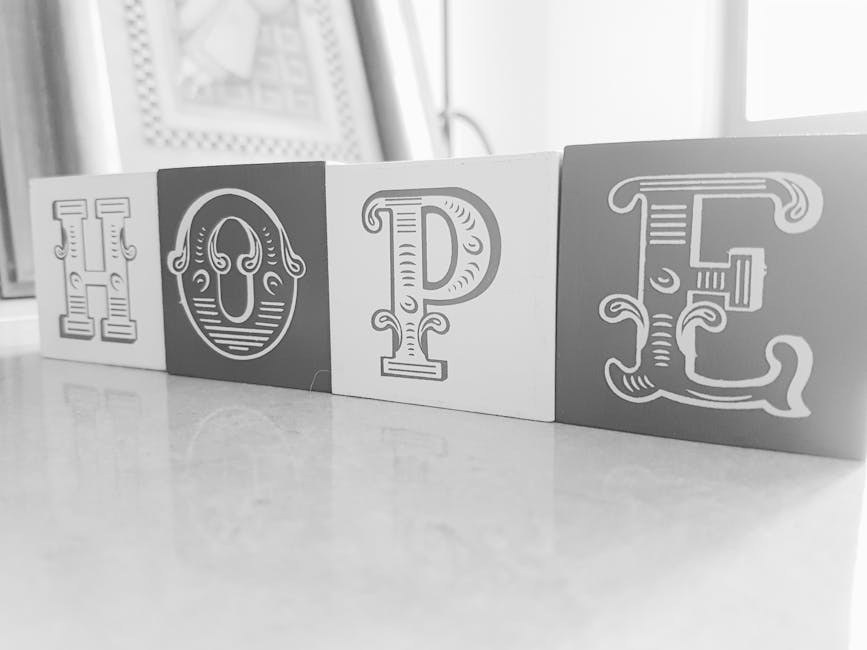Heartbreak changes the shape of the day – and sometimes the shape of who you think you are. In the quiet after a breakup, one impulse can feel especially persuasive: declare yourself anti love and swear off romance altogether. The logic seems airtight in the moment. If getting close is what hurts, then distance must be the cure. But distance and healing aren’t the same. This piece explores what it really means to adopt an anti love stance, what tends to follow when you shut the door, and what becomes possible when you stay open to love while still protecting your heart.
What an Anti Love Stance Actually Involves
Choosing anti love isn’t just a slogan – it’s a posture toward connection. You stop seeking dates, ignore chemistry when it sparks, and organize your life so that romance cannot easily find you. You might delete dating apps, decline set-ups, and sidestep conversations that brush against desire. In practice, anti love is an effort to manage risk: remove the context where feelings grow, and you won’t have feelings to lose. The aim is protection; the cost is possibility.
This choice can feel empowering at first. After all, deciding where you put your attention is an act of agency. Yet agency used only to avoid – rather than to heal – can become a wall you have to carry. Anti love can reduce exposure to pain, but it also reduces exposure to warmth, growth, and the gentle surprises that make life vivid.

What Often Happens When You Shut the Door
-
You stop entertaining suitors or pursuing crushes. That seems like the point of anti love – prevent heartbreak before it can begin. You turn away from flirting, leave messages unanswered, and let interest fade instead of exploring it. In the short term, this feels clean and controlled. Over time, it can turn into a habit of preemptive dismissal, where you reject people not because they are wrong for you, but because you are afraid of being wrong about them.
-
You lean only on friends and family for affection. That can be nourishing – love is bigger than romance – but it can also become lopsided if you start depending on them to fill every emotional gap. When anti love becomes your guiding rule, you may overinvest in familiar bonds and feel rattled when others set boundaries of their own. It’s healthy to seek comfort; it’s risky to outsource your sense of safety.
-
You view couples through a cynical lens. Before the breakup, you might have felt happy for other people’s joy, even if you wanted it for yourself. With anti love in the foreground, the mind scans for evidence that confirms the new worldview – spotting flaws, predicting endings, overlooking tenderness. This doesn’t just change how you see romance out there; it changes how you speak about love, which can quietly distance you from friends who want to share their happiness without defending it.

-
You avoid situations that could spark connection. Work gatherings, parties, group hikes, even a friendly coffee with someone who seems kind – each becomes a scenario to manage. You stop saying yes to uncertainty, and your world grows smaller. The emotional math behind anti love is simple: fewer variables, fewer ways to be hurt. But less variation also means fewer chances to discover who you’re becoming after the breakup.
-
You accidentally push away people who care. A strong anti love posture can sound like rejection to those who want to show up for you. They might stop inviting you, stop confiding in you, or keep their distance because they don’t want to trigger your defenses. You’re trying to protect your heart; they’re trying not to harm it – and the result is a thinner, quieter life than you intended.
-
Solitude weighs more than expected. Being alone can be restorative; feeling lonely is different. Anti love often starts as a promise of relief – no drama, no second-guessing, no waiting by the phone. In time, relief can turn into a flatness that’s hard to name. You realize that protecting yourself from hurt protected you from delight, too, and that the shield you forged now stands between you and the ordinary sweetness of being known.

Why Staying Open Changes the Story
Remaining open to love does not mean sprinting toward the next relationship. It means allowing room for surprise – letting the heart thaw at its own pace, practicing boundaries instead of building barricades, and recognizing that healing and hope can move together. Where anti love aims to prevent pain, openness aims to grow wisdom. Here’s what tends to unfold when you choose curiosity over withdrawal:
-
You turn experience into insight. Heartbreak is rarely random. Patterns, choices, and blind spots shape what we live through. Instead of swearing off intimacy, you can sift your story – not to assign blame, but to understand your part. That understanding becomes guidance. Openness invites you to ask better questions next time, and to listen when your body offers early feedback – that whisper that says “this doesn’t sit right” or “this feels grounded.”
-
Each new connection reflects your growth. When you keep learning, you stop choosing replicas of an old dynamic. You notice new qualities, give attention to different signals, and calibrate your pace. That doesn’t guarantee a perfect match – nothing does – but it increases the odds that your next chapter feels more aligned. Progress is quieter than fireworks and steadier than infatuation.
-
You reclaim time for yourself without shutting others out. Breakups create space. Openness lets you use that space for repair – sleep, movement, creativity, therapy, faith, nature – while still honoring your social self. The goal isn’t to be relationship-ready by a deadline; it’s to be in relationship with your own life again.
-
You rediscover joy in unexpected places. When you’re not consumed by anti love rules, you notice small good things: the way a friend laughs, the quiet of a morning walk, the spark of a new skill. These joys don’t replace romance; they remind you that your heart can feel many flavors of gladness. That memory is powerful when fear tries to make your world narrow.
-
You become sturdier. Healing is a craft. You learn how to soothe yourself, how to ask for what you need, and how to pause when you’re flooded. The result is resilience – not the brittle kind that never bends, but the living kind that can sway and return. This sturdiness travels with you into every arena, including love.
-
You notice good possibilities in better places. Once you cross an ex off the map, you can redraw the terrain. You might find yourself interested in people who share your values, respect your rhythms, and treat connection as something to co-create. Openness teaches you to look where reciprocity lives.
Healing Without Becoming Defined by Anti Love
It’s reasonable to step back from dating after a painful ending. The trouble begins when a pause turns into identity. If anti love is the only story you tell yourself, the heart has nowhere to go but inward. Consider giving your break a frame: not never again, but not right now. That small shift keeps the future available without demanding that you move faster than your feelings.
Name your boundaries. You can be open to love and still say no to situations that feel unsafe or unkind. Boundaries are doors with hinges – they close and open; walls don’t.
Slow your pace. You don’t have to share everything early or escalate quickly. Let time do some sorting. People who are good for you will respect your cadence.
Notice your narratives. If you catch your mind using absolute language – “always,” “never,” “everyone,” “no one” – you’ve probably slipped back into anti love thinking. Trade absolutes for observations. Curiosity softens edges.
Strengthen other sources of love. Friendship, community, family, and self-compassion are not consolation prizes. They are part of a thriving heart. Investing there doesn’t compete with romance; it supports it.
Let support be ordinary. Ask for help. Talk to someone wise. Journal the memories that sting until they make more sense. Healing isn’t a contest in stoicism; it’s a practice in allowing.
If You Choose Anti Love for Now
There are seasons when anti love feels like the only stance that fits – especially if the breakup was chaotic or your nervous system is exhausted. If that’s your season, treat the stance as a temporary shelter, not a permanent address. Give it rules that serve recovery rather than rigidity: fewer triggers, more rest; fewer high-stakes choices, more gentle structure. Remind yourself that you’re not rejecting love itself; you’re choosing conditions that help you feel safe again.
Keep an eye on drift. If anti love begins to mute your capacity for joy or isolate you from people who are good for you, adjust the plan. Introduce low-pressure social time, notice who leaves you calmer than they found you, and allow a little warmth to pass through the door you closed. You can be cautious without being cold.
If You Choose Openness Instead
Openness isn’t a command to say yes; it’s permission to consider yes. You can let someone take you for coffee and still keep your boundaries. You can enjoy a flirt and still move slowly. You can admit you want partnership – or that you don’t, at least not right now – without apologizing for either. This is the middle path between reckless hope and rigid anti love: a posture that trusts your growing wisdom to steer.
Let your values lead. If respect, patience, kindness, and humor are non-negotiable, treat them that way. If your body says “I feel safe here,” believe it; if it tightens, honor that too. The question isn’t whether love will guarantee your safety – it can’t – but whether you are building a life where you can keep yourself safe while still being seen.
Reframing the Core Question
The initial question after heartbreak is seductive because it feels binary: anti love or open heart, fortress or front porch. Real life is subtler. You can be selective without being shut down. You can be discerning without declaring the end of romance. The heart is resilient when given time and care – it’s meant to mend.
So ask a different question: What kind of connection am I ready for, and what pace honors my healing? If the honest answer today is “none,” let that be true without branding yourself anti love forever. If the answer is “something gentle,” let that be true without rushing past the tenderness of recovery. Either way, you are allowed to be both careful and hopeful – a human being who protects their softness while still believing in what it can hold.
Putting It All Together
Anti love promises clarity through avoidance. Openness offers clarity through attention. One strategy tries to shrink risk; the other grows capacity. You do not have to choose a stance that hardens your heart to keep it safe. You can honor the pain you’ve known and still leave the door cracked – not because you owe love another chance, but because you owe yourself a life that includes wonder.
If you adopt anti love, let it be a resting place with a view, not a windowless room. If you remain open to love, let it be paced, boundaried, and rooted in self-respect. Either path can carry you toward wholeness when walked intentionally. The difference is whether fear is steering or wisdom is guiding. When wisdom leads, the heart learns to protect itself without vanishing – and that is how you move forward after heartbreak, not by turning your back on love, but by turning toward yourself first.